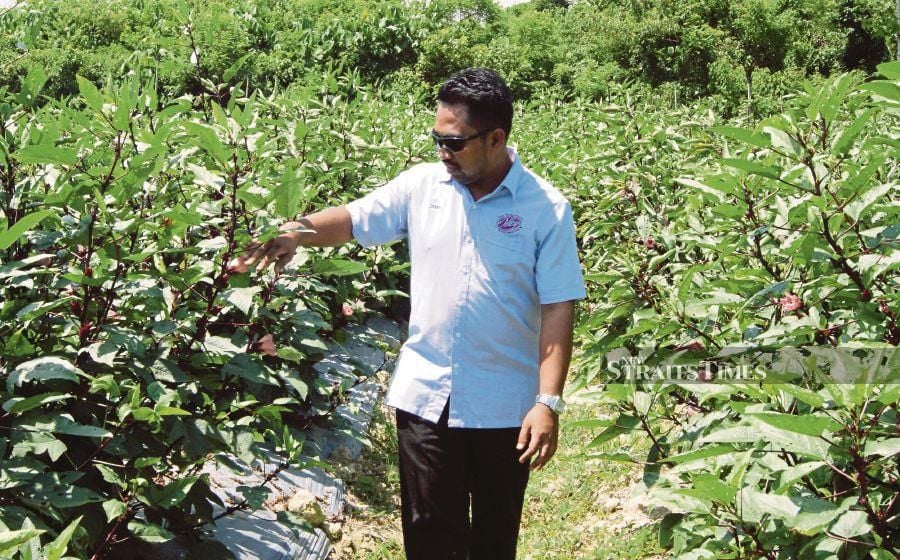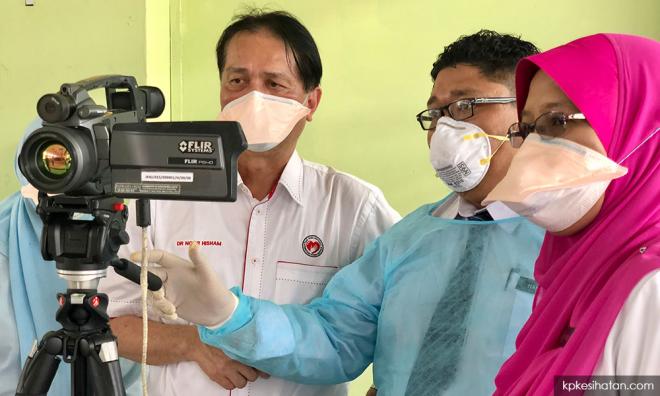
Published by Malaysiakini & Sin Chew, images from Malaysiakini.
Coronavirus is a generic name. It has been around, by some scientific estimates, for close to 60 years. But the species that host it was a range of animals ranging from civet cats to monkeys and bats, if not more.
But like all vicious viruses, which want to thrive in all hosts, once it has made that “jump” from animals to humans, it will refuse to easily perish.
The severe acute respiratory syndrome (Sars) was a good example. Although Sars has become extinct after eight months of causing global public health and economic shock in 2003, Covid-19 (previously identified by the World Health Organisation as N, or Novel, Coronavirus 2019 (when it exploded in the city of Wuhan, China, last December) has returned as the cousin of Sars.
Thus, in some scientific circles, Covid-19 can also be known as Sars Cov II. In fact, it is Sars Cov II that is triggering the disease known as Covid-19.
The best analogy is HIV or Human Immuno Virus. When one is identified as HIV-positive, without proper medicine or a combination of medicine, one is liable to becoming perennially sick. The latter is Acquired Immune Deficiency Syndrome (Aids). Sars Cov II, for the lack of a better word, triggers Covid-19.
Of course, not all Covid-19 infections are fatal. They range from mild, severe to critical.
As of March 4, WHO has raised Covid-19 to the highest alert level short of calling it a pandemic.
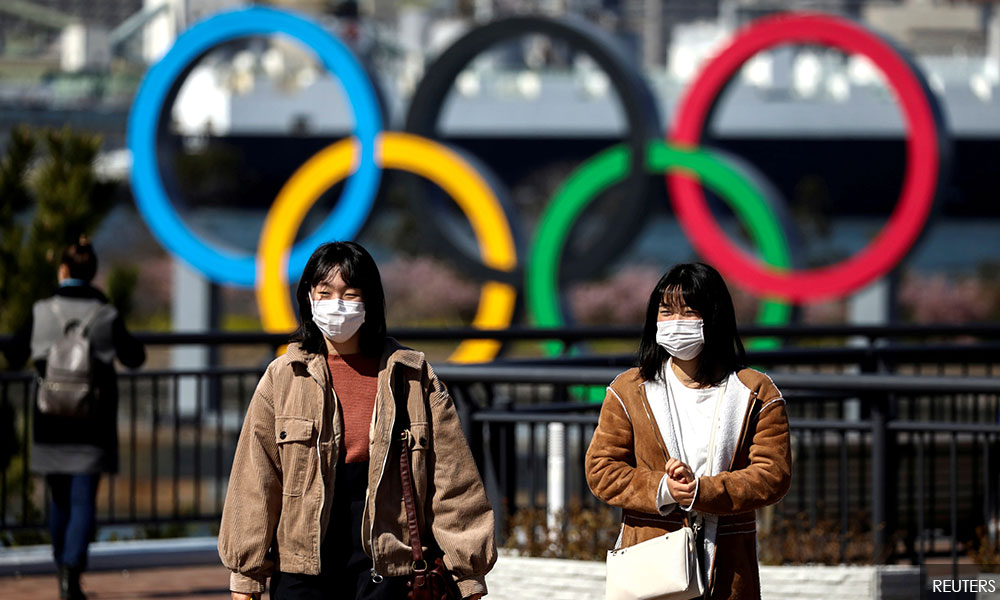
But having been transmitted to 65 countries, and growing, with every continent in the world registering cases either in their singular digits or in the tens of thousands, it is clearly pandemic.
Pan, being the Greek root word, suggests the crossing of more than two continents – a definition which WHO is not averse to.
As things stand, scientists in China have discovered two strains of Covid II. One is named strain S, while the other is known as strain L.
The South China Morning Post reported that of the two, strain L is more infectious.
One of the reasons why the cases in Wuhan, which exploded into nearly 80,000 between Jan 22 and now, has begun to stabilise in speed and scale by which the public health authorities in China had been able to enforce an effective quarantine of not just Wuhan but 13 other cities in China.
While the Covid-19 has the effect of disrupting the economic, manufacturing and supply chain activities in China, it is also affecting the world as 20 percent of the world’s total production is reliant on China, as opposed to three percent in 2003, and jamming up global commerce completely.
Thus, even if the cases in Wuhan have seen a noticeable drop, registering a few hundred cases a day rather than thousands, China and the rest of the world would be deeply upended.
One has not included the outbreak in South Korea, that has just crossed 5,000 cases in a week, and Iran and Italy, which together, has led to an increase of 3,000 cases and counting.
While the average mortality of Covid-19 hovers between two and three percent, it depends on one’s gender, geography and immunity.
Scientists have shown that Covid-19 appears to be more lethal on males, especially those with chronic diseases such as diabetes, bronchitis and asthma.
The chances of one’s survival are also contingent on which country or city they are located. In cities like Hong Kong and Singapore, which have medical services, Covid-19 has not overwhelmed their private and public hospitals yet. The same goes for Malaysia.
But if there are any attempts to suppress information, as China had tried to do when the likes of Covid-19 was first discovered on Dec 8, last year, then the rapid transmission would demand radical measures such as a comprehensive and enforced quarantine.
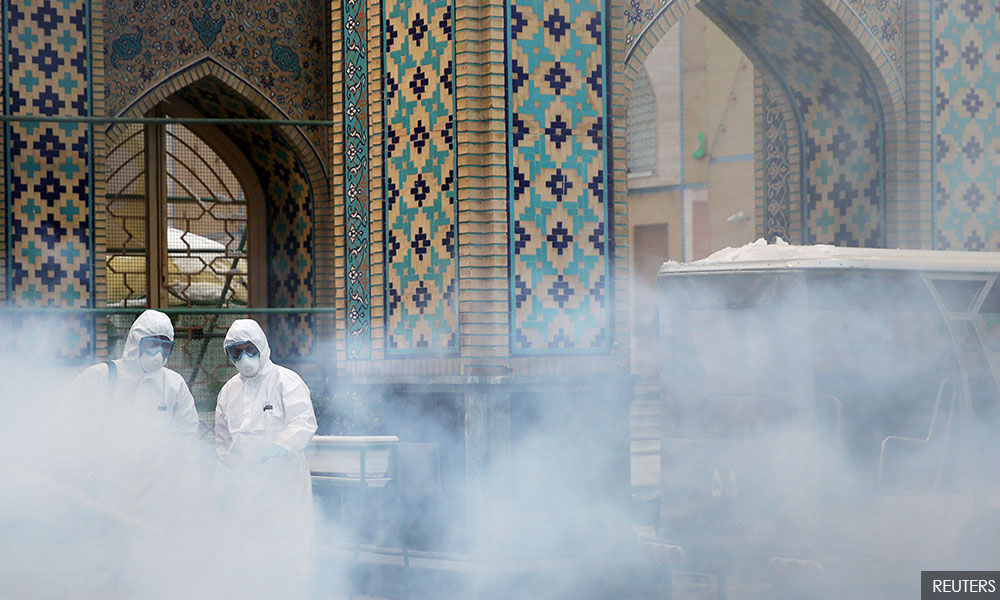
In Iran, the mortality rate is 5.74 percent, which suggests that the health authorities there have not been transparent with the number of cases reported. The high mortality rate, almost 2.5 times than China, Hong Kong and Singapore, implied a ticking time bomb in Iran.
As things are, the deputy minister of health has caught it as did the vice-president of Iran and the advisor to President Khamenei. The latter has passed away too. Indeed, CNN reports that up to eight percent of the MPs in Iran are affected by Covid-19.
In Malaysia, Patient 26 has been in close contact with his staff and various officials, leading to the infection of 19 people out of a total of 50 patients in the country to date. As this is written, some 189 patients who have undergone tests have not received their health status or clearance yet.
Covid-19 is deadly despite its low mortality rate. Why? To begin with, the virus can stay on the surface of one’s phone for almost a week, according to the research of a professor at the University of Southampton, as reported in The Telegraph.
With 50 cases to date in various parts of the United Kingdom, Prime Minister Boris Johnson has announced an emergency anti-coronavirus plan. He ought to know its danger as a leaked report from the British Prime Minister’s Office last week affirmed that the worst-case scenario is one whereby 50-70 percent of all British citizens would be ill.
In the press conference to the media yesterday, Prime Minister Boris Johnson affirmed that all companies in the UK have to be ready to operate with a fifth of their workforce unable to return to work.
The army and the police have also been asked not to focus on any minor crimes. Instead, all hands are on deck to face the spectre of a full-blown pandemic in the UK.
Mordena, a US pharmaceutical firm, as well as Japan’s Fujifilm Toyama Chemical Co Ltd, which also operates in Malaysia, are doing their earnest to develop a vaccine. But the likelihood of an effective vaccine which can be deployed on all human population across the entire face of the world is likely to be a year to one-and-a-half years away.
As Covid-19 runs rampant in various parts of Asia and Europe, Malaysia, in particular, has to be careful about the protocol of containing the outbreak. Truthful information must be disclosed for all days to raise the level of societal preparedness.
Patients do recover from Covid-19, but there have been cases that those who had recovered are liable to experience a relapse. While strong in contact tracing, Malaysia must not let their guard down.
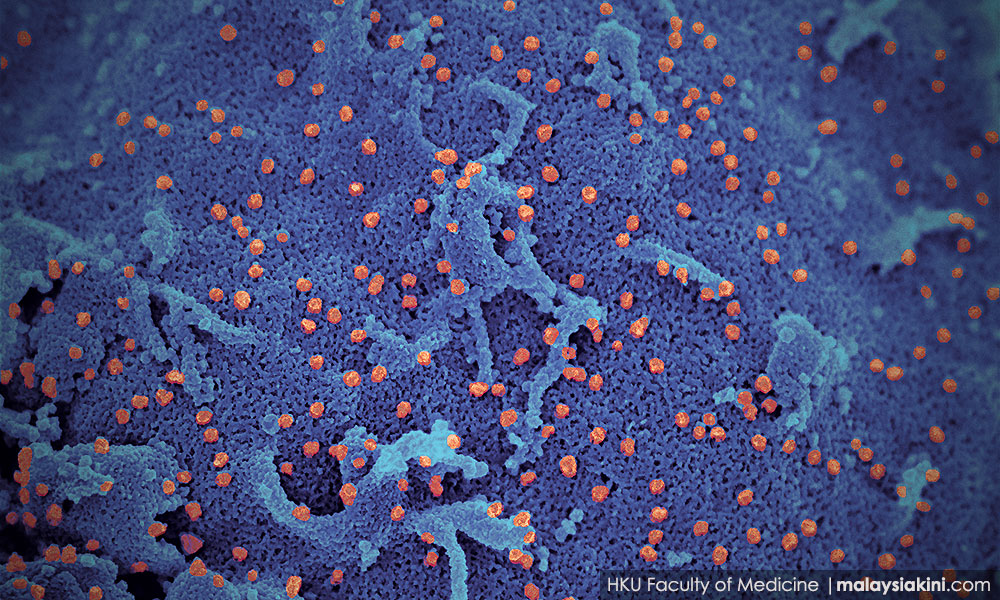
Indeed, what makes Covid-19 so deadly is its asymptomatic nature. The incubation period can be as long as 14 days to 35 days. Thus, one afflicted with Covid-19 can begin rapidly spreading the virus without even knowing he or she is spreading it.
Covid-19 is extremely smart too. It first tries to break into the Ribonucleic Acid (RNA), a biological mechanism that is involved in transmitting key health information to one’s DNA.
The attempt to latch on to a person’s RNA is most effective when the Angiotensin-converting enzyme 2 (Ace 2) membranes and counts of the victims are weak.
Once the virus of Covid-19 has latched onto Ace 2, it then tries to trick an enzyme in the body known as Encin to double and divide exponentially.
Come what may, Covid-19 requires the whole of Malaysia to be on super alert, especially if we love our parents and friends above the age of 55 who may not be well nourished.
Only by rising above politics, for now, can Malaysia’s health authorities wrestle this beast to the floor, potentially with the help of relevant medical authorities like WHO or pharmaceutical companies such as Fujifilm Toyama.
Dr. Rais Hussin is President & CEO of EMIR Research, an independent think tank focused on strategic policy recommendations based on rigorous research.
Diterbitkan oleh Malaysiakini & Berita Harian, gambar-gambar daripada Malaysiakini.
Koronavirus merupakan nama generik. Ia telah wujud, kira-kira hampir 60 tahun secara saintifiknya. Tetapi ia hanya wujud di dalam badan beberapa spesies haiwan, antaranya kucing civet, monyet, kelawar serta beberapa lagi.
Sama seperti virus berbahaya yang lain, virus ini boleh merebak, daripada binatang kepada manusia, dan sukar untuk dibendung.
Sindrom Pernafasan Akut Teruk (Sars) adalah contoh yang boleh diambil. Walaupun Sars pupus selepas lapan bulan kewujudannya, ia telah mengejutkan dunia, daripada sektor kesihatan hingga ekonomi pada tahun 2003. Dan Covid-19 (sebelum ini dikenali sebagai N atau Novel-Coronavirus 2019 oleh Pertubuhan Kesihatan Sedunia (WHO), muncul pertama kali di Wuhan, China pada Disember lepas), dikenal pasti sebagai sepupu kepada Sars.
Di kalangan pakar saintis, Covid-19 juga dikenali sebagai Sars Cov II. Malah, Sars Cov II ini sebenarnya pencetus kepada wabak yang dikenali sebagai Covid-19.
Contoh analogi terbaik adalah HIV (human immuno virus). Apabila seseorang itu disahkan positif HIV, tanpa rawatan atau kombinasi ubat-ubatan yang sesuai, orang itu akan mengalami sakit yang berpanjangan. Dan akhirnya akan melarat menjadi AIDS (acquired immune deficiency syndrome). Keadaan ini sama seperti Sars Cov II, yang membawa kepada Covid-19.
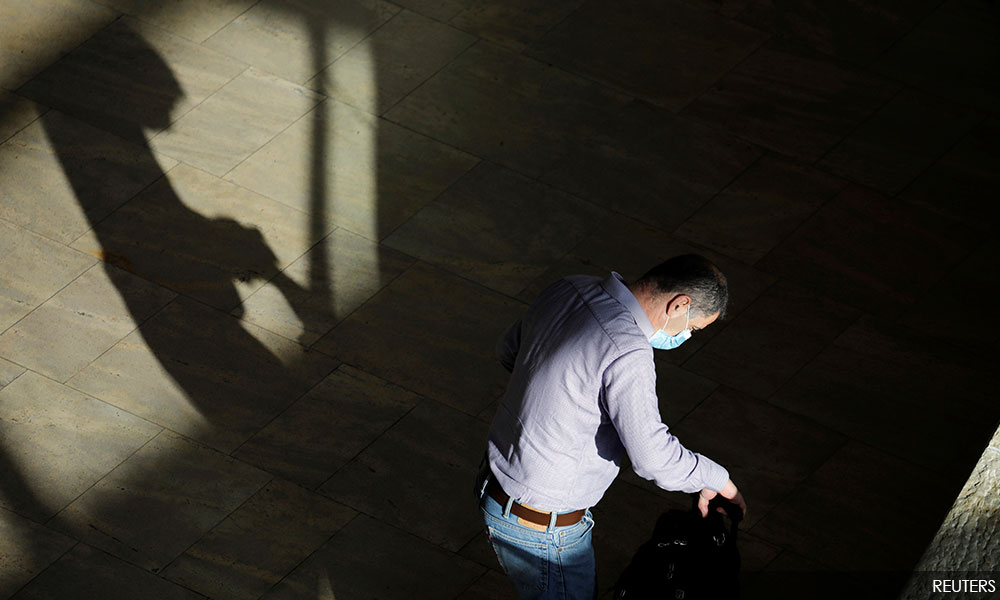
Tidak semua yang dijangkiti Covid-19 berakhir dengan maut. Covid-19 dikategorikan; ringan, teruk dan kritikal – oleh WHO.
Sehingga 4 Mac, WHO telah mengisytiharkan amaran tahap tinggi, sedikit lagi untuk sampai ke tahap pandemik – wabak penyakit yang tersebar dengan begitu meluas, hingga ke seluruh dunia.
Namun ia telah merebak ke 65 negara, dan terus meningkat, dengan setiap benua telah pun mendaftarkan kes yang sama. Dan jelas ini merupakan pandemik.
Pan – daripada perkataan pandemik – merupakan kata dasar Yunani, bermaksud penyebaran lebih daripada dua benua – takrif yang sedang diambil kira oleh WHO.
Sementara itu, saintis di China telah menemukan dua jenis strain Covid II – Strain S dan Strain L. Ia dilaporkan oleh South China Morning Post, yang Strain L didapati lebih berjangkit.
Salah satu sebab mengapa kes-kes di Wuhan – yang telah merebak kepada hampir 80,000 orang antara 22 Januari sehingga sekarang, semasa artikel ini ditulis – mula stabil daripada segi skala dan kepantasan. Ini kerana pihak berkuasa kesihatan awam di China telah menguatkuasakan kuarantin dengan berkesan, bukan setakat di Wuhan, malah di 13 bandar lain di China.
Ganggu rantaian ekonomi
Pada masa yang sama, Covid-19 menganggu rantaian aktiviti ekonomi, pembuatan dan pembekalan di China, yang secara langsung memberi kesan terhadap ekonomi dunia, sekali gus akan memperlahankan perdagangan global sepenuhnya.
Sebanyak 20 peratus jumlah pengeluaran dunia bergantung kepada China, berbanding tiga peratus pada tahun 2003,
Walaupun kes-kes di Wuhan menyaksikan penurunan yang ketara, ratusan kes sehari berbanding ribuan kes sebelumnya, China dan negara yang lain di seluruh dunia akan terasa kesannya sangat mendalam.
Korea Selatan, yang tidak terkesan pada awal penyebaran wabak ini berlaku, terdapat 5,000 kes dalam masa seminggu, sementara Iran dan Itali, mempunyai 3,000 kes secara keseluruhan dan terus meningkat.
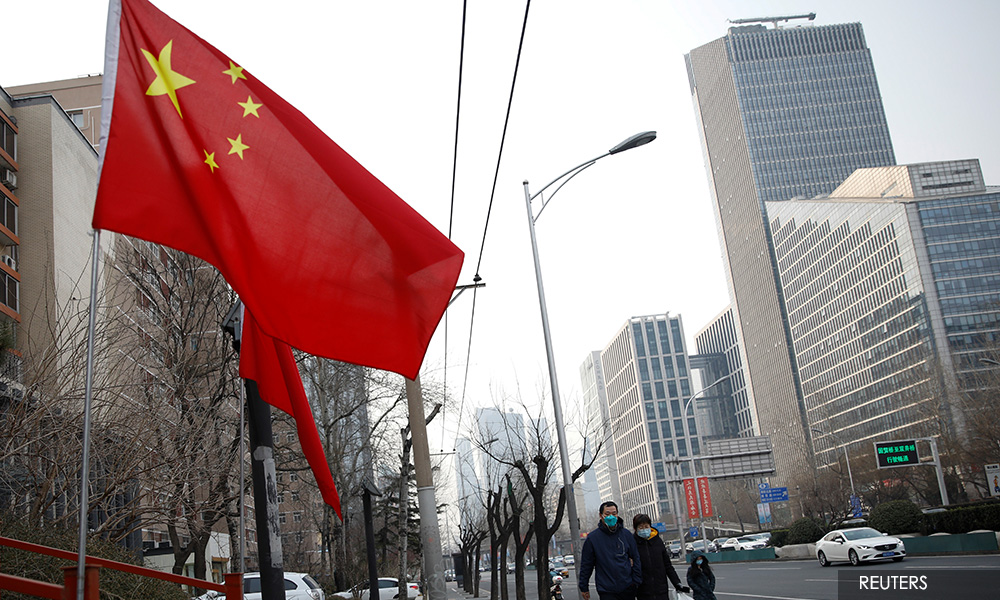
Purata kematian Covid-19 antara dua ke tiga peratus, bergantung kepada jantina, geografi dan imuniti seseorang.
Saintis mengatakan bahawa Covid-19 kelihatan lebih membawa maut kepada lelaki, terutama mereka yang mempunyai penyakit kronik seperti diabetes, bronkitis, asma.
Kebarangkalian peluang untuk selamat atau pulih juga bergantung kepada kedudukan sesebuah negara atau bandar. Bandar-bandar seperti Hong Kong dan Singapura, yang mempunyai akses perkhidmatan perubatan, Covid-19 tidak dapat menembusi hospital awam dan swasta mereka, begitu juga dengan Malaysia.
Namun, jika terdapat percubaan untuk memanipulasi atau memintas maklumat, seperti yang berlaku di China ketika Covid-19 ditemukan pada 8 Disember, respons pantas akan diambil dengan langkah radikal seperti penguatkuasaan kuarantin yang komprehensif.
Di Iran, kadar kematian mencapai 5.74 peratus. Ini menunjukkan bahawa pihak berkuasa kesihatan di sana tidak telus dengan jumlah kes yang dilaporkan. Kadar kematian itu tinggi, lebih 2.5 kali ganda tinggi daripada China, Hong Kong dan Singapura.
Sementara itu, timbalan menteri kesihatan Iran disahkan positif Covid-19, termasuk naib presiden dan penasihat Presiden Ali Khamenei. Penasihat tersebut sudah pun meninggal dunia. Malahan, CNN melaporkan bahawa lapan peratus ahli parlimen di Iran sudah dijangkiti Covid-19.
Di Malaysia, pesakit Covid-19 kes ke-26, mempunyai kontak rapat dengan kakitangan dan beberapa pegawai, yang membawa penularan kepada 19 orang daripada 50 pesakit sehingga kini. Seramai 189 kontak rapat tersebut telah menjalani ujian namun masih belum menerima status kesihatan mereka.
Covid-19 boleh membawa maut walaupun mempunyai kadar kematian yang rendah, mengapa? Sebagai permulaan, virus itu boleh berada di permukaan telefon seseorang individu selama hampir satu minggu, menurut penyelidikan profesor di Universiti Southampton, seperti dilaporkan The Telegraph.
Salur vaksin makan masa hingga satu setengah tahun
Dengan 50 kes setakat ini dikesan di beberapa daerah di United Kingdom, Perdana Menteri Boris Johnson mengumumkan pelan kecemasan antikoronavirus. Beliau sepatutnya dapat mengetahui bahaya virus ini lebih awal, hasil pembocoran maklumat daripada Pejabat Perdana Menteri Britain minggu lepas yang mengesahkan bahawa senario terburuk yang boleh berlaku adalah 50 hingga 70 peratus rakyat Britan akan dijangkiti.
Dalam sidang media akhbar semalam, Perdana Menteri Boris Johnson mengesahkan bahawa semua syarikat di UK harus bersedia untuk beroperasi dengan satu per lima tenaga kerja tidak dapat kembali bekerja.
Tentera dan polis juga diarah untuk tidak memberi tumpuan kepada sebarang jenayah kecil. Sebaliknya, semua harus fokus untuk menghadapi pandemik sepenuhnya di UK.
Mordena, firma farmaseutikal Amerika Syarikat, serta Fujifilm Toyama, yang juga beroperasi di Malaysia, sedang berusaha gigih untuk membangunkan vaksin. Namun kemungkinan vaksin ini berkesan dan boleh disalurkan ke seluruh dunia akan memakan masa satu hingga satu setengah tahun lagi.
Dengan Covid-19 masih menular di beberapa bahagian di Asia dan Eropah, terutamanya Malaysia, perlu berhati-hati mengenai protokol yang mengandungi wabak ini. Maklumat yang benar mestilah didedahkan sepanjang hari untuk meningkatkan tahap kesediaan masyarakat.
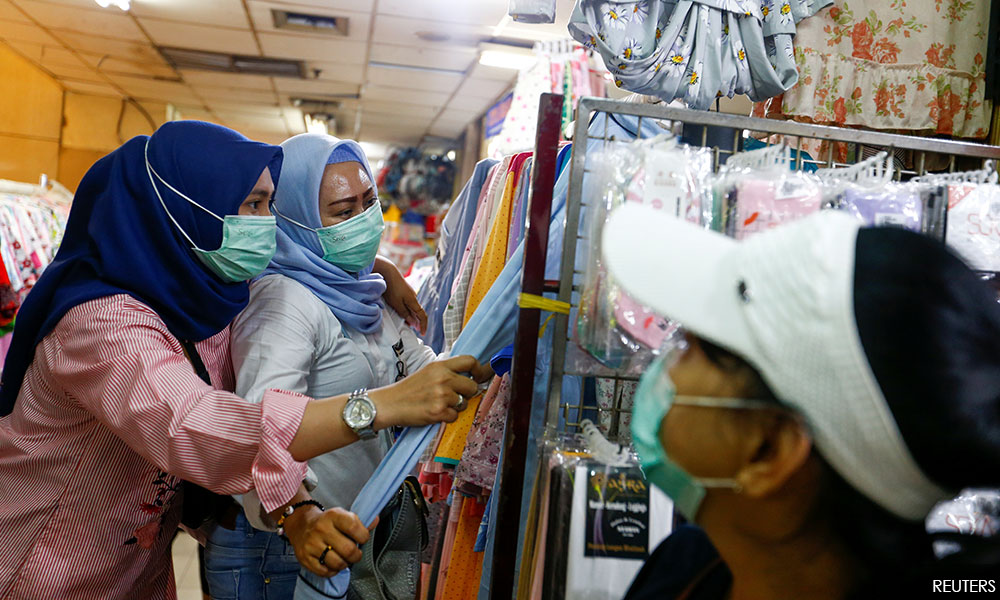
Walaupun pesakit pulih daripada Covid-19 ini, namun terdapat beberapa kes pesakit tersebut kembali dijangkiti. Oleh itu, walaupun kontak rapat pesakit Covid-19 di Malaysia dipantau dengan rapi, namun jangan sesekali leka.
Sifat asimptomatik Covid-19 membuatkan virus ini sangat bahaya. Tempoh inkubasi pula boleh memakan masa 14 hingga 35 hari. Individu yang dijangkiti Covid-19 boleh menyebarkan virus tersebut tanpa dia mengetahui bahawa dia yang menyebarkannya.
Covid-19 juga sangat pintar. Ia akan cuba untuk memasuki asid ribonukleik (RNA), satu mekanisme biologi yang menghantar maklumat utama kesihatan seseorang melalui DNA.
Percubaan untuk menyebarkannya kepada RNA seseorang individu merupakan langkah yang paling berkesan apabila membran enzim angiotensin 2 (ACE II) dan kadar upaya seseorang individu itu lemah.
Sebaik sahaja virus Covid-19 memasuki ACE II, ia kemudian akan cuba mengelirukan enzim dalam badan yang dikenali sebagai Encin, untuk digandakan dan membahagikannya secara pantas.
Oleh yang demikian, Malaysia harus lebih peka dengan wabak merbahaya Covid-19 ini, terutamanya jika mempunyai ibu bapa, ahli keluarga, atau sahabat yang sudah berumur 55 tahun yang tidak mempunyai nutrisi secukupnya.
Dengan keadaan politik yang semakin tidak menentu, kini, pihak berkuasa kesihatan Malaysia harus berdepan dengan virus yang semakin menular ini, dan harus bekerjasama dengan bantuan pihak berkuasa perubatan seperti WHO atau syarikat farmaseutikal seperti Fujifilm Toyama.
Dr. Rais Hussin merupakan Presiden & CEO EMIR Research, sebuah organisasi pemikir bebas yang berfokuskan kepada pencernaan saranan-saranan dasar strategik berteraskan penyelidikan yang terperinci, konsisten dan menyeluruh.
